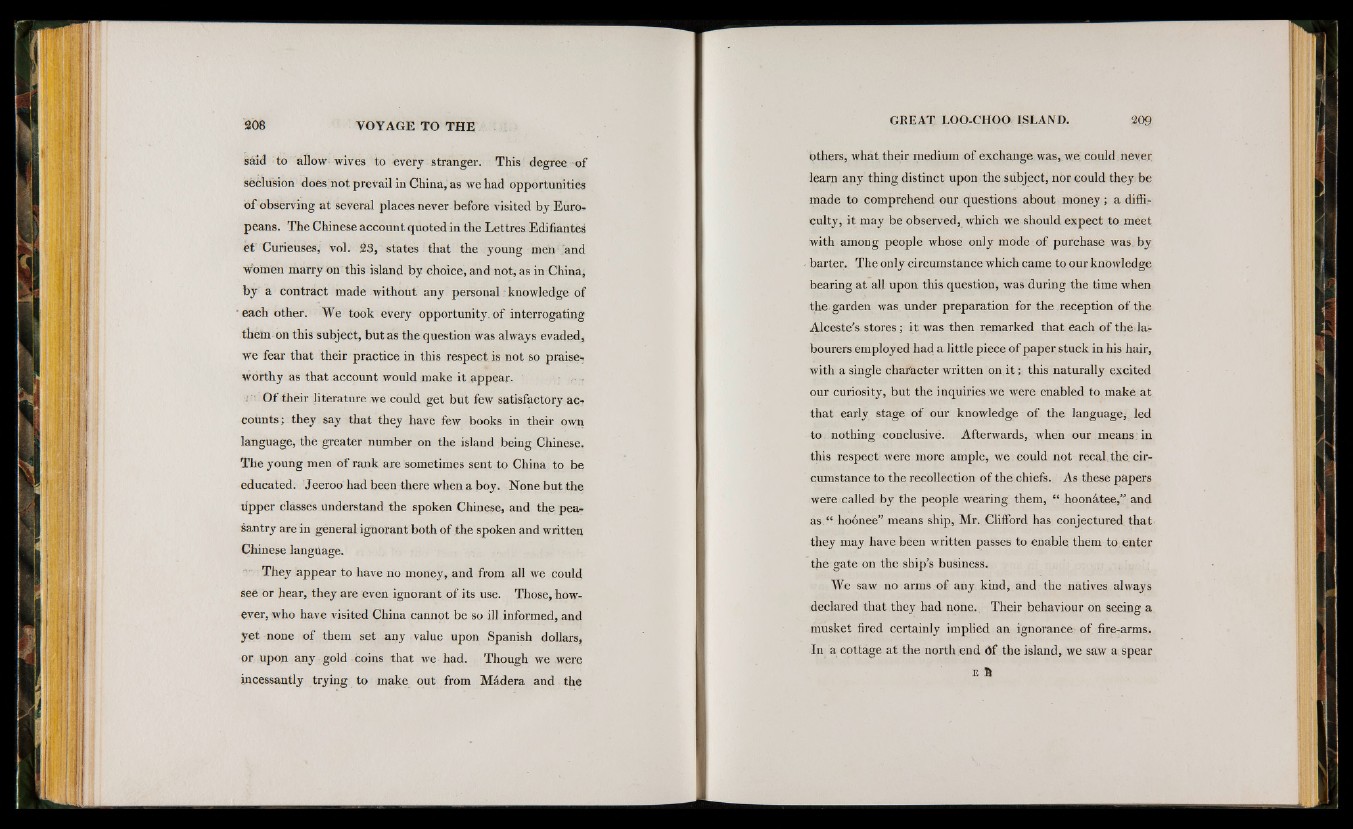
said to allow wives to every stranger. This degree of
séclusion does not prevail in China, as we had opportunities
of observing at several places never before visited by Europeans.
The Chinese account quoted in the Lettres Edifiantes
e t Curieuses, vol. 23, states that the young men and
women marry on this island by choice, and not, as in China,
by a contract made without any personal j knowledge of
each other. We took every opportunity, of interrogating
them on this subject, but as the question was always evaded,
we fear tha t their practice in this respect is not so praiseworthy
as that account would make it appear.
ü Of their literature we could get but few satisfactory accounts;
they say that they have few books in their own
language, the greater number on the island being Chinese,
The young men of rank are sometimes sent to China to be
educated. Jeeroo had been there when a boy. None but the
tipper classes understand the spoken Chinese, and the peasantry
are in general ignorant both of the spoken and written
Chinese language.
They appear to have no money, and from all we could
see or hear, they are even ignorant of its use. Those, however,
who have visited China cannot be so ill informed, and
yet none of them set any value upon Spanish dollars,
or upop any gold coins that we had. Though we were
incessantly trying to make out from Mâdera and the
others, what their medium of exchange was, we could never
learn any thing distinct upon the subject, nor could they be
made to comprehend our questions about money; a difficulty,
it may be observed, which we should expect to meet
with among people whose only mode of purchase was by
barter. The only circumstance which came to our knowledge
bearing a t all upon this question, was during the time when
the. garden was under preparation for the reception of the
Alceste’s stores; it was then remarked that each of the labourers
employed had a little piece of paper stuck in his hair,
with a single character written on i t ; this naturally excited
our curiosity, but the inquiries we were enabled to make at
tha t early stage of our knowledge of the language, led
to nothing conclusive. Afterwards,, when our means, in
this respect were more ample, we could not recal. the circumstance
to the recollection of the chiefs. As these papers
were called by the people wearing them, “ hoon&tee,” and
as.“ hobnee” means ship, Mr. Clifford has conjectured that
they may have been written passes to enable them to enter
the gate on the ship’s business.
We saw no arms of any. kind, and the natives always
declared that they had none.. Their behaviour on seeing a
musket fired certainly implied an ignorance of fire-arms.
In a cpttage at the north end df the island, we saw a spear
e a